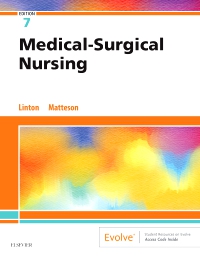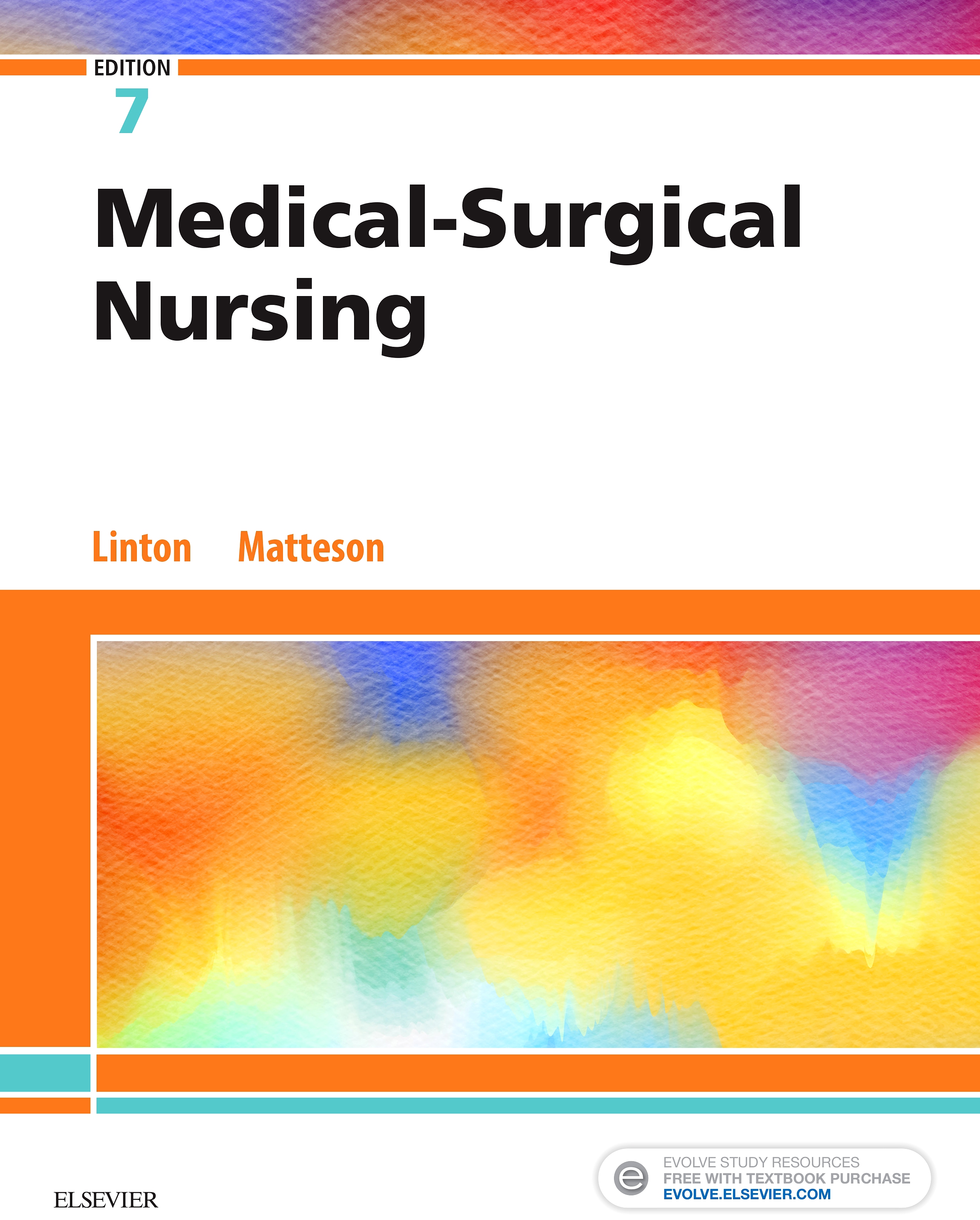
Medical-Surgical Nursing Elsevier eBook on VitalSource, 7th Edition
Elsevier eBook on VitalSource

Now $86.39
Gain the knowledge and skills you need to effectively care for adult patients. Medical-Surgical Nursing, 7th Edition covers both medical-surgical and psychiatric mental health conditions and disorders while building on the fundamentals of nursing. This essential text focuses on nursing roles, settings, trends, body systems and their disorders, and emergency and disaster management. Unique to this edition is the gerontologic nursing unit which addresses physiologic and psychosocial changes in the older adult, along with related disorders common to the elder patient - the primary patient group population you’ll encounter in practice. It also emphasizes culturally competent care and holistic nursing, while thoroughly covering all relevant NCLEX-PN® test plan content. With updated guidelines on diabetes, heart failure, asthma, COPD, and cancer treatment protocols, no other resource offers the breadth of topics at a level that is so perfectly tailored to the LPN/LVN student.
Newer Edition Available
Medical-Surgical Nursing Elsevier eBook on VitalSource
-
- UNIQUE! Gerontologic nursing unit covers physiologic and psychosocial changes in the older adult, along with related disorders common to the elder patient, the primary patient group for whom LPNs provide care.
- UNIQUE! In-depth pharmacology coverage includes: the Pharmacology Tutorial covering drug classifications, how drugs work, and nursing responsibilities; Pharmacology Capsules boxes providing medication information, precautions for use, interactions, and side/adverse effects; and Pharmacology and Medications tables including classification, use/action, side/adverse effects, and nursing interventions.
- Nursing care plans reinforce the nursing process and focus on critical thinking.
- Get Ready for the NCLEX-PN® Examination! sections at the end of chapters include key points, review questions, and case studies that address the various NCLEX® Client Needs categories.
- Coordinated Care boxes highlight team approach to patient care, helping you to prioritize tasks and assign them safely to assistive personnel.
- Patient Teaching Plans provide bulleted lists of nursing instructions for patients, stressing the role and responsibility of the LPN/LVN to reinforce patient education.
- Health Promotion Considerations boxes highlight timely wellness and disease prevention topics.
- Cultural Considerations boxes discuss the importance of providing culturally competent care related to various clinical situations.
- Put on Your Thinking Cap boxes allow you to pause and consider the practical implications of what you have just read.
- Nutritional Considerations boxes are spotlighted at appropriate points throughout the text to emphasize the role that nutrition plays in disease and nursing care.
- Complementary and Alternative Therapies focus on nontraditional therapies along with precautions and possible side effects.
- Key terms with phonetic pronunciations help improve terminology and language skills of English-as-a-Second-Language (ESL) students and students with limited proficiency in English before they enter clinical practice.
-
- NEW! Organization of disorders units consolidates anatomy and physiology, nursing assessment/data collection, and diagnostic tests into one chapter.
- NEW! Updated guidelines on diabetes, heart failure, asthma, COPD, and cancer provides you with latest treatment protocols.
-
UNIT I: Medical-Surgical Nursing
1. Aspects of Medical-Surgical Nursing
2. Medical-Surgical Practice SettingsUNIT II: Populations Receiving Medical-Surgical Care
3. Medical-Surgical Patients: Individuals, Families, and CommunitiesUNIT III: Pathology Processes and Effects
4. Health, Illness, Stress, and Coping
5. Immunity, Inflammation, and Infection
6. Fluid, Electrolyte, and Acid-Base Balance
7. Cancer
8. Pain
9. ShockUNIT IV: Special Problems of the Older Adult Patient
10. The Older Adult Patient
11. Falls
12. Immobility
13. Delirium & Dementia
14. IncontinenceUNIT V: Therapeutics
15. Nutrition
16. Intravenous Therapy
17. Surgery
18. Ostomy
19. Palliative and Hospice Care
20. Complementary and Alternative TherapiesUNIT VI: Neurological System
21. Neurological System Introduction
22. Neurological Disorders
23. Cerebrovascular Accident
24. Spinal Cord InjuryUNIT VII: Respiratory System
25. Respiratory System Introduction
26. Upper Respiratory Disorders
27. Acute Lower Respiratory Disorders
28. Chronic Lower Respiratory Tract DisordersUNIT VIII: Hematologic and Immunologic Systems
29. Hematologic System Introduction
30. Hematologic Disorders
31. Immunologic System Introduction
32. Immunologic DisordersUNIT IX: Cardiovascular System
33. Cardiovascular System Introduction
34. Cardiac Disorders
35. Vascular Disorders
36. HypertensionUNIT X: Digestive System
37. Digestive System Introduction
38. Upper Digestive Tract Disorders
39. Lower Digestive Tract Disorders
40. Liver, Gallbladder, and Pancreatic DisordersUNIT XI: Urologic System
41. Urologic System Introduction
42. Urologic DisordersUNIT XII: Musculoskeletal System
43. Musculoskeletal System Introduction
44. Connective Tissue Disorders
45. Fractures
46. AmputationsUNIT XIII: Endocrine System
47. Endocrine System Introduction
48. Pituitary and Adrenal Disorders
49. Thyroid and Parathyroid Disorders
50. Diabetes and HypoglycemiaUNIT XIV: Reproductive Systems
51. Female Reproductive System Introduction
52. Female Reproductive Disorders
53. Male Reproductive System Introduction
54. Male Reproductive Disorders
55. Sexually Transmitted InfectionsUNIT XV: Integumentary Systems
56. Integumentary System Introduction
57. Skin DisordersUNIT XVI: Special Senses
58. Special Senses Introduction
59. Eye and Vision Disorders
60. Ear and Hearing DisordersUNIT XVII: Medical-Surgical Patients with Psychiatric Disorders
61. Psychobiologic Disorders
62. Substance AbuseUNIT XVIII: Nursing in Disasters and First Aid
63. First Aid, Emergency Care, and Disaster Management




 as described in our
as described in our 